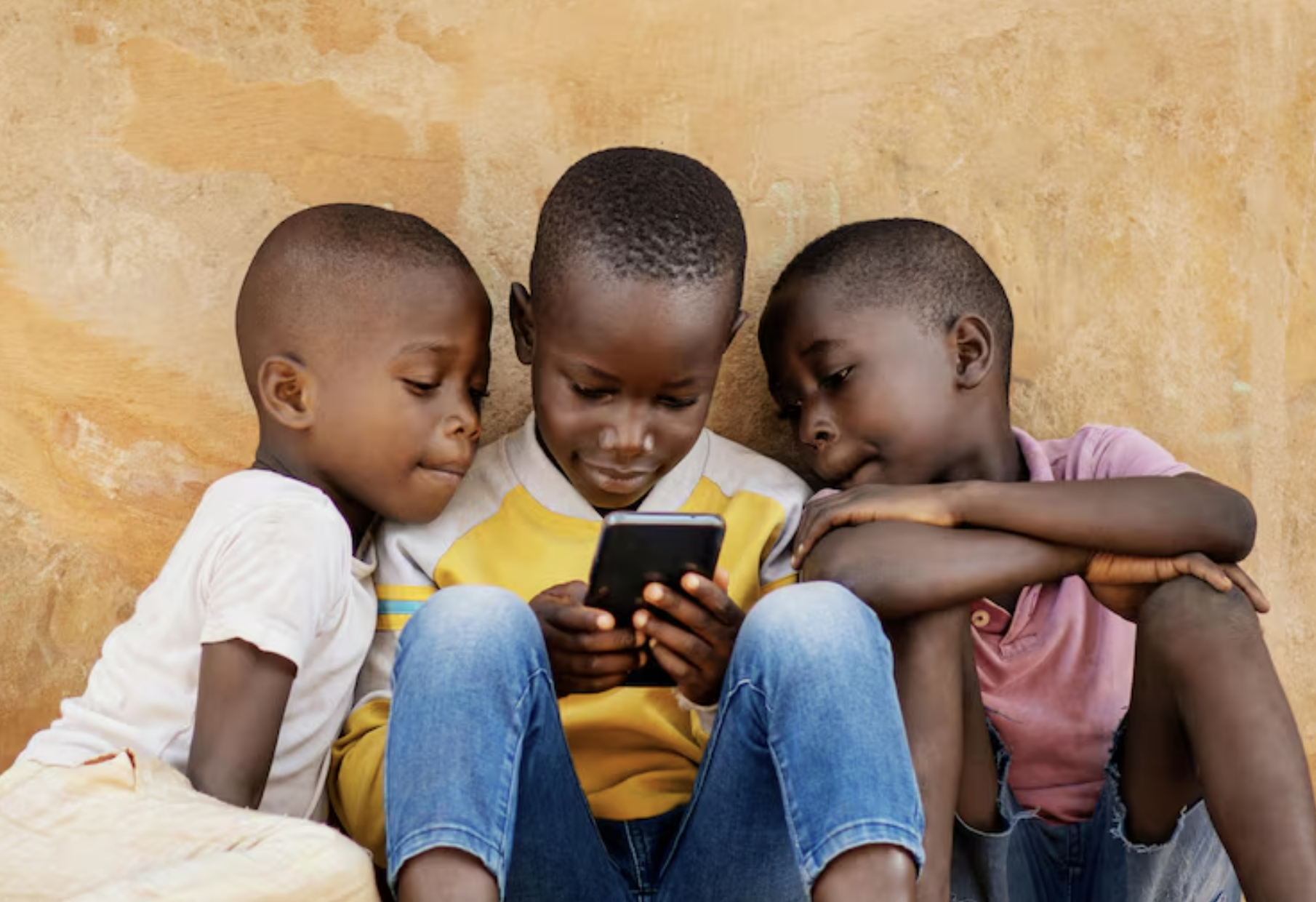 Children on the phone. There was a six per cent decrease in the odds for school readiness with every month increase in age. That is because older preschoolers spent more time on screens than toddlers, due to permissiveness in parents.
Children on the phone. There was a six per cent decrease in the odds for school readiness with every month increase in age. That is because older preschoolers spent more time on screens than toddlers, due to permissiveness in parents.You watch those tiny fingers move so quickly, those bright eyes glued to the screen, and think, “My child is so smart.” It feels like proof that your baby is ahead of the others, modern, ready for this new world.
But new findings by a team led by Dr Emmanuel Okenwa-Vincent, an optometrist and senior lecturer at Kaimosi Friends University, should make you pause. Dr Okenwa and his team studied 144 toddlers and preschoolers (children between two and five years old), and found something that may surprise you.
Those who spent more than an hour a day on screens were far less ready for school. Their chance of being school-ready dropped by half. The scientists called it a 52 per cent lower chance of school readiness.
“School readiness is a multifaceted construct that includes traditional academic competencies, such as language, literacy, and mathematics, as well as non-cognitive skills like self-regulation, social skills, and motor control, all of which are essential for children to successfully adapt to school demands,” the researchers said.
It encompasses the ability to sit still long enough to listen, to follow instructions, to share toys with other children, and to control emotions when things do not go their way. A mobile phone cannot teach these things.
The researchers interviewed parents of the children at Early Childhood Development and Education (ECDE) centres in Kakamega County. Parents completed questionnaires on socio-demographic characteristics, home media environment, and their child’s daily screen exposure, with television and mobile devices recorded separately. School readiness was measured using Unicef’s Early Childhood Development Index (ECDI2030), which assesses physical, cognitive, language, and socio-emotional skills.
A child development specialist also administered the Denver II developmental screening test.
“Good school readiness is increasingly recognised as a precursor to meeting academic curricula and encompasses a child’s ability to learn without emotional complexity, thus facilitating effective participation in academic life. Children’s early academic success is critically linked to their later educational achievements, and as such, the determinants of school readiness are wide-ranging,” the researchers said.
Their findings are published in the Sage Open Paediatrics journal, under the title, “Associations Between Screen Exposure, Home Media Environments, and Indicators of School Readiness in Toddlers and Preschoolers from Kakamega County, Kenya.”
In Kakamega, the children in the study were spending an average of two hours a day on screens. That is double the safe limit recommended by both the World Health Organization and the American Academy of Paediatrics.
"For those aged two years, sedentary screen time should be no more than one hour; less is better. When sedentary, engaging in reading and storytelling with a caregiver is encouraged," say the 2019 WHO guidelines on physical activity, sedentary behaviour and sleep for children under five years of age.
Two children in the Kenyan study spent eight and 13 hours a day on screens.
The researchers kept those cases in their analysis, saying they reflected the reality of some homes.
They also noticed another pattern. A child’s age, measured in months, was a significant factor. There was a six per cent decrease in the odds for school readiness with every month increase in age. That is because older preschoolers spent more time on screens than toddlers, due to permissiveness in parents.
“This pattern likely explains the lower chances of kindergarten preparedness with older preschoolers, indicating a lower likelihood of being school-ready, compared with toddler lifestyles,” the researchers said.
Children whose parents actively controlled screen time, watched with them, choosing educational programmes, and set limits, were much more likely to be ready for school.
“Parental mediation emerged as a crucial factor in mitigating potential negative effects of media exposure, underscoring the importance of active parental engagement, as recommended by international guidelines,” the researchers said.
Other factors, such as parental age, household characteristics, and screen time controls, were also examined. Children of older parents, for instance, demonstrated significantly higher odds for school readiness.
While it feels good to see your child confidently tapping and swiping, finding videos faster than you can, that is not deep learning. It is repetition, like learning to turn the pages of a book without understanding the story.
Experts said true intelligence grows when a child asks questions, solves problems, and uses their senses to explore the real world.
The researchers explained that children’s brains are shaped most powerfully in these early years. Every moment you spend talking to your child, singing with them, answering their endless “why?” questions, letting them sort beans, you are wiring their mind for thinking, empathy, and self-control.
They noted screens are not the enemy, but they should never replace your voice, your touch, your laughter.
“This research reinforces the need to educate parents, especially in low- and middle-income African regions, about the benefits of limiting screen time and promoting balanced activities,” the authors said.
The other authors are Rose Opiyo (Masinde Muliro University), Benoit Gauthier and Linda S. Pagani (University of Montreal), Ijang Bih Ngyah-Etchutambe (University of Buea, Cameroon), Yaser Ramírez-Benítez (University of Cienfuegos, Cuba), and Suzan Al Abidi (Al Ain University, UAE).











